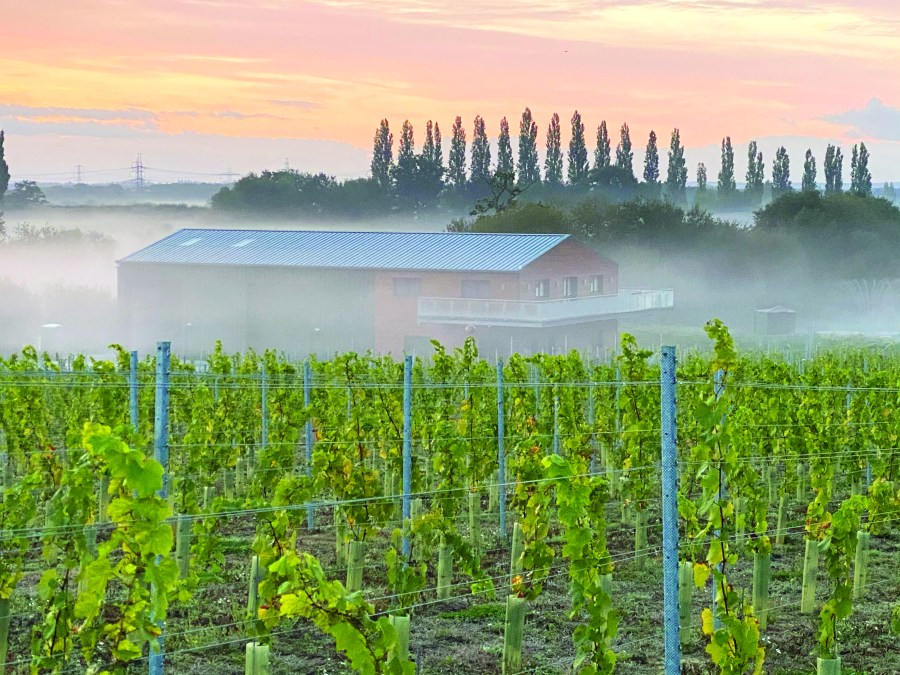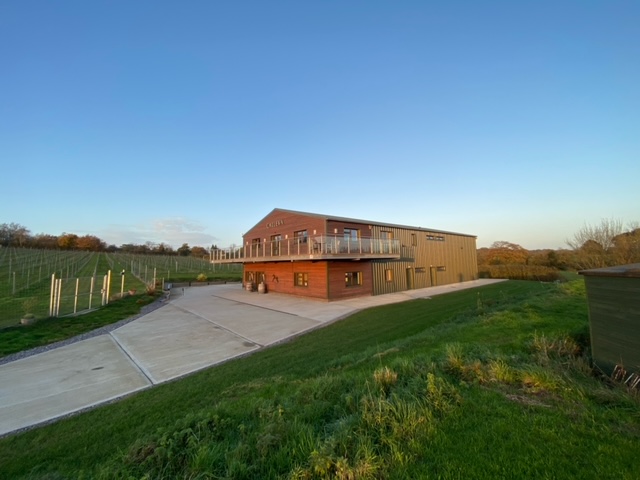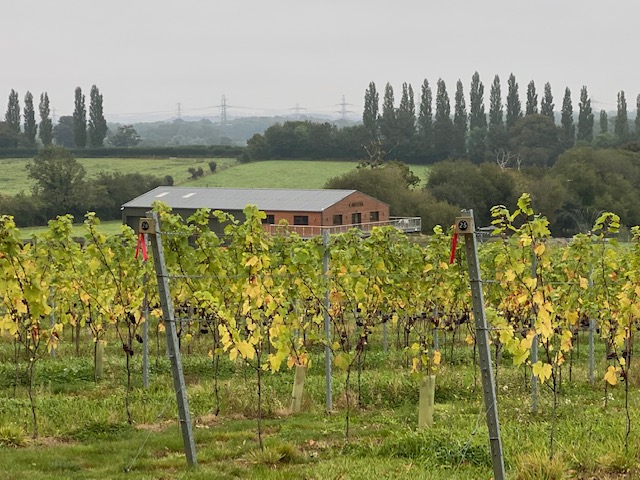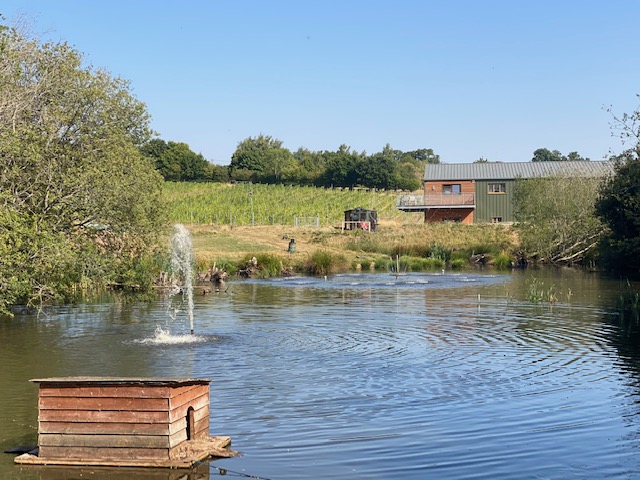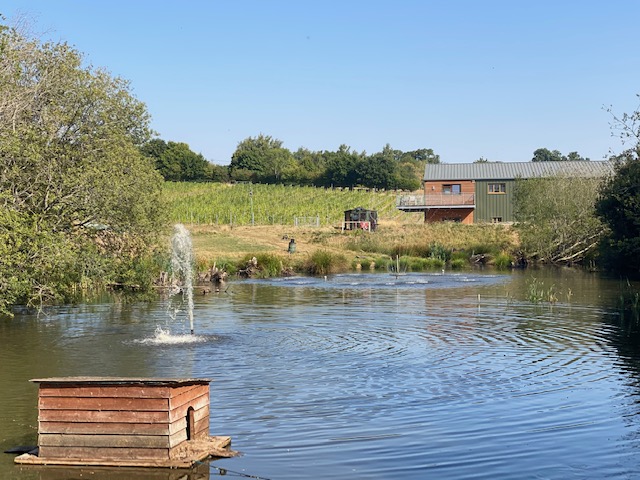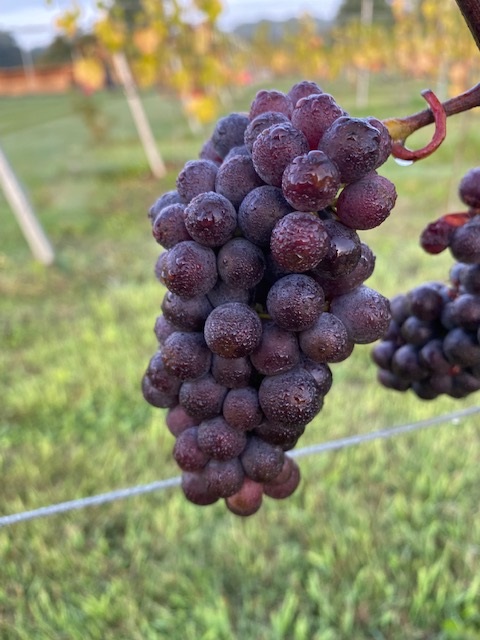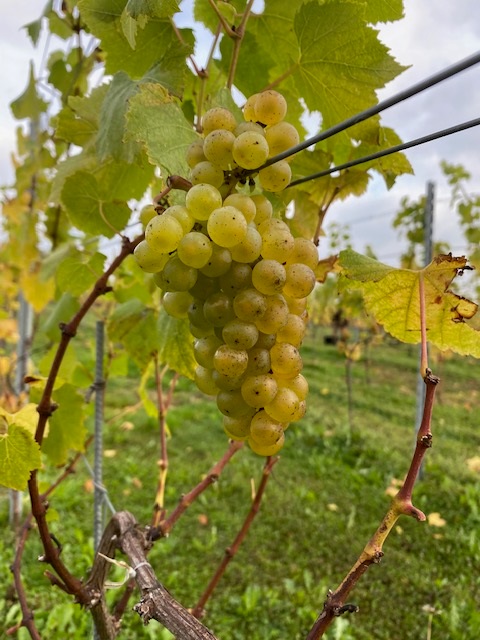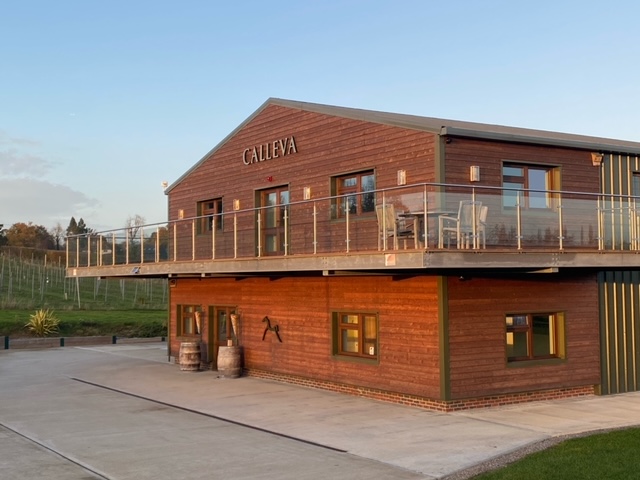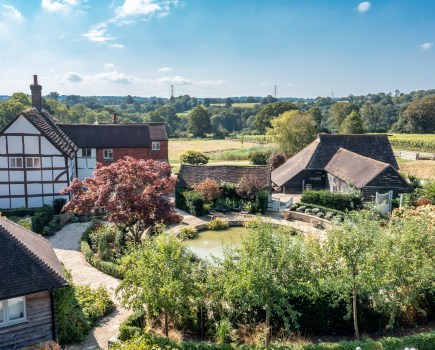An eleventh-hour decision by vineyard owner Peter Came has given the Calleva Vineyard on the Hampshire/Berkshire border a vital marketing advantage.
“The night before I was about to spray my new vines for the first time, I had second thoughts about drenching them in chemicals and the impact it would have on the ecosystem, insects and wildlife,” he recalled.
The next day, Peter rang his agronomist and asked him to take the chemicals away and replace them with natural products including seaweed, garlic and Epsom salts. “They were very understanding,” he said.
That decision means that by March 2023 the lovingly tended six-acre vineyard in Silchester – which is now up for sale – is expected to receive full organic status from the Soil Association.
Selling the site was not part of Peter and wife Corinne’s plan, something that will be obvious to anyone who looks at the quality of the winery on the site or the care that has been lavished on the vines, which are made up of 60% Chardonnay, 25% Pinot Noir, 9% Pinot Meunier and 6% Rondo.
Always a country boy at heart, and with enviably green fingers, Peter bought Greenlands Farm in Silchester after selling his specialist insurance business and proceeded to buy an additional 20 acres of land from a neighbour.
It gave him a total of 40 acres of land which Peter was keen to put to good use. As Corinne explained: “Watching the fields being used to make hay was a frustration for him as he felt we could be achieving so much more from them.”
After reading all he could about vines and wine, Peter received an unusual present for his next birthday; a short course at Plumpton College which saw him spend seven days over seven months studying, spending mornings in the classroom and the afternoons on practical skills. He finished the course with a distinction and his enthusiasm increased.
Advice and comments from leading industry figures confirmed that the site was ideal for growing grapes, and so in 2019 the couple went ahead and planted 9,000 vines. They are generously spaced, in Peter’s own words, “because it was going to be me driving the tractor, so I insisted on nice wide aisles and decent turning circles”.
The decision not to spray was prompted by the couple’s desire to create something special. “It was going to be hard to compete with the many other Hampshire vineyards without a decent USP (unique selling point), and since only about 10% of the country’s vineyards are organic, we decided that was the way forward,” he said.
It also reflected their plan to create an ‘experience destination’ that would make more of the site’s one-acre pond and the already abundant wildlife that they have encouraged and added to with wild flower planting, bat boxes and bee hives.
To enhance the experience, the couple built a winery which includes a tractor and
machinery store which is high enough to take wine tanks, a mezzanine floor for storing consumables and space for bonded wine. There is also a tasting room with a bar, kitchen and toilets, while the ground floor includes showers which are also useful for the workforce.
Reflecting the quality that runs through the whole venture, the oak bar and windowsills in the upstairs tasting room were handmade from a 300 year-old tree which fell four years ago. There is space for tables and chairs, and access to the balcony for summer lunches with stunning views of the vineyard and pond.
The name of the vineyard was taken from the Roman town of Calleva Atrebatum, just half a mile from the site. “Silchester was the centre of the Iron Age kingdom of the Atrebates tribe and we wanted to make a connection with this historic place combined with the Roman love of fine wine,” Peter said. “Calleva was the obvious answer.”
Having made growing grapes a real labour of love, Peter recently suffered a health setback and was advised not to do anything too physical. “Given that I hate sitting and watching and always have to be out there in the thick of any job that needs doing, we made the reluctant decision to sell both Greenlands Farm and Calleva,” he said.
“It was never part of the plan, but whoever takes over will reap the benefits of a lot of hard work and attention to detail over the past few years. I look forward to toasting their success with a glass of their first vintage.”

